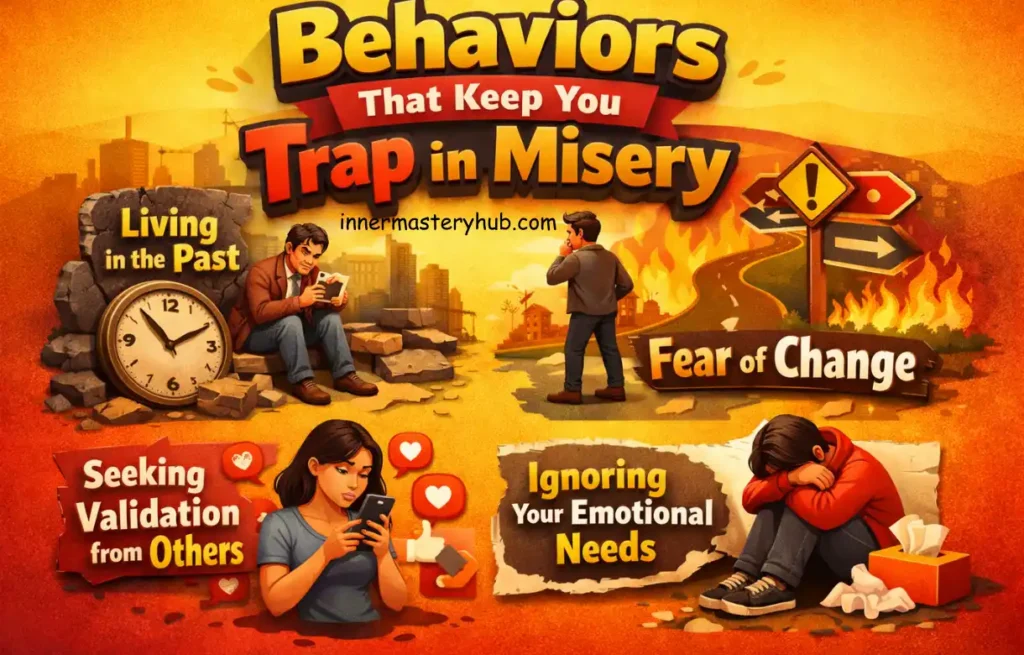Why INFJ Women in Their 30s Feel Both Lost and Empowered

Being an INFJ woman in your thirties can feel like you’re navigating through a maze. You might be achieving a lot in your career and personal life, but still, something feels off. You might wonder why, despite your accomplishments, you’re not as fulfilled as you hoped to be.
Let’s explore this issue to find practical steps to regain that sense of fulfillment.
Differences Between Male and Female INFJs
MBTI (Myers-Briggs Type Indicator) (16 personality types) is a personality assessment that categorizes INFJ personality types as Introverted, Intuitive, Feeling, and Judging.
Male and female INFJs share specific common characteristics, even though INFJ is a gender-neutral personality type. Cultural norms and societal expectations frequently impact these variations. It may be harder for male INFJs to express their feelings publicly, and they often choose analytical careers.
The opposite may be true for female INFJs, who may thrive in loving and nurturing interactions with others and have a greater affinity for artistic endeavors.
Recharging is not a luxury for INFJ women; it is a requirement. Since they rely on introspection to fuel their intuitive insights, this alone time is the rarest resource available.
This time spent introspecting enables them to rejuvenate their intuitive thoughts and work towards improving the world.
INFJs are frequently characterized as possessing a high level of emotional intelligence. They can comprehend the underlying feelings of individuals and circumstances because of their acute sense of intuition.
The Sense of Unfulfillment
A lot of female INFJs in their thirties start to doubt the course of their lives. It resembles having an existential or midlife crisis. Even if your family, career, and social circle are secure, you may still feel unfulfilled and yearn for something more profound.
This mismatch often occurs when your everyday activities are not aligned with your long-term objectives and deeper ideals.
I used to think my corporate job in my thirties was perfect. Despite reaching several career milestones, I didn’t feel the satisfaction I had hoped for. I was demotivated and felt empty because my employment didn’t align with my principles.
The Emotional Toll of Being Unfulfilled
Emotionally, the lack of fulfillment can be exhausting. INFJ women possess a strong sense of ideals and a high level of environmental sensitivity.
When life doesn’t align with their goals, it might cause tension, worry, and internal conflict. Emotional stress and strong emotions can impact happiness and general well-being, not only unhappiness.
More than sixty percent of women in their thirties say they are unhappy with their lives, according to a 2020 study published in the “psychology journal.” This sentiment may be exacerbated for INFJ women due to their intense need for meaning and purpose.
Let go of the need to be idealistic every time.
INFJ women are naturally idealistic and sympathetic, driven to improve the world and help others. They are passionately committed to causes, relationships, and personal growth due to their keen intuition and empathy.
However, when reality fails to meet their high expectations, this idealism can lead to irritation, burnout, or disillusionment. To prevent disappointment, INFJ women must strike a balance between idealism and pragmatism.
By learning to accept flaws while working towards significant change, you may transform your idealism into constructive, long-lasting action and maintain your optimism and sense of purpose without succumbing to unattainable expectations.
15 Things to Finding Fulfillment for INFJ women in their 30s
Here are seven practical steps to help INFJ women in their thirties find greater fulfillment.
1. Redefine Your Success
INFJ women frequently base their definition of success on their values. It’s essential to reassess what success means to you at this stage. Think about what makes you happy and what is consistent with your ideals rather than what society expects you to achieve.
I came to see that my earlier idea of success was predicated on approval from others. My sense of fulfillment increased when I focused on the most important things, such as developing personally and having a positive influence. I began establishing objectives that went beyond simply fulfilling social norms and instead represented my core values and beliefs.
2. Practice Self-Care
INFJ women are renowned for their sensitivity and a tendency to prioritize the needs of others. To avoid burnout, prioritizing self-care is essential. Simple activities that can significantly enhance emotional well-being include meditation, regular physical activity, and engaging in hobbies.
The American Psychological Association claims that consistent self-care routines improve the INFJs’ mental health and lower stress. Even modest daily self-care practices can significantly enhance emotional resilience.
My life significantly improved when I adopted a daily self-care regimen. I began setting out fifteen minutes every morning for journaling and meditation. I felt more grounded and better able to manage the strains of everyday life as a result to this minor adjustment.

3. Learn to Say No
Because INFJ women in their 30s and individuals with this personality type tend to find it challenging to say no, they may take on too many responsibilities. Balance depends on your ability to set limits and refuse demands that don’t fit with your beliefs or goals.
I used to suffer as an introvert from taking on too many social and professional responsibilities. Saying no lets me focus on the essential things and lessens my stress. Defining my boundaries made me feel less overwhelmed and more in control.
4. Seek Meaningful Connections
Deep, meaningful interactions are what INFJ women in their 30s thrive on. Concentrate on developing relationships with people who share and comprehend your values. Surround yourself with positive and supportive individuals.
With a few close pals who had similar ideals, I tried to strengthen our bonds. My overall sense of fulfillment was significantly enhanced by these deep ties, which provided me with the understanding and emotional support I needed.
Research published in the “Journal of Social and Personal Relationships” indicates that happiness and life satisfaction are significantly influenced by the quality of one’s social connections. A significant factor in emotional well-being is the quality of meaningful interactions.
5. Engage in Purposeful Work
If you’re unhappy with your current job, consider exploring new options that align with your values and interests. Taking on work that seems meaningful can improve your sense of fulfillment, whether it is through a side project, volunteer work, or a job move.
I accepted a part-time position in a non-profit that shared my enthusiasm for community service. Along with giving me a feeling of direction, this also made me feel more content and balanced in my main line of work.
Employees who find meaning in their work are 60% more likely to be engaged and satisfied, according to a 2018 Gallup survey. INFJ women in their 30s who seek fulfillment must work on things that align with their unique ideals.
6. Develop Your Spiritual Side
Growing spiritually is a source of fulfillment for many INFJ women in their thirties. Exploring spiritual beliefs or practices can offer a more profound meaning and a sense of belonging to something bigger.
I experimented with mindfulness and journaling about my spiritual experiences, as well as other spiritual practices. This clarified my life’s purpose and helped me connect with my inner self.
According to a study published in The Journal of Psychology, individuals who practice spirituality report feeling more emotionally and happier.
7. Setting Healthier Boundaries
They learn that saying “no” isn’t selfish—it’s self-care. By protecting their time and energy, they create space for authentic relationships, creative flow, and genuine peace, rather than constant emotional overload.
8. Journaling and Self-Reflection
Writing becomes a grounding ritual. It helps them process emotions, clarify thoughts, and recognize patterns. Through journaling, they reconnect with their intuition and uncover what truly fuels their joy and purpose.
9. Simplifying Life
They often declutter—physically, emotionally, and socially. By choosing simplicity, they reduce chaos and focus on what feels peaceful and genuine, creating space for creativity, connection, and clarity.
10. Nurturing Creativity
INFJ women in their 30s recharge by expressing themselves through art, writing, music, or design. Creativity becomes therapy—a safe, soulful outlet for emotions that words often struggle to capture, bringing renewed fulfillment and balance.
11. Spending Time Alone in Nature
Time in nature helps them quiet their mental noise and reconnect with inner calm. Long walks, hiking, or simply sitting outside help restore energy and reawaken their spiritual connection.
12. Healing Old Wounds
INFJ women in their 30s tend to confront emotional pain rather than avoiding it. Therapy, inner work, or spiritual healing helps them release guilt, perfectionism, and past disappointments—opening space for emotional freedom and self-love.
13. Following Intuitive Nudges
They begin trusting their inner voice more than external advice. When they follow intuition, life aligns naturally with their authentic desires, leading to peace, growth, and unexpected joy.
14. Redefining Success
They stop chasing conventional milestones. Success becomes about peace, authenticity, and making a meaningful contribution, rather than status, money, or appearances. Fulfillment comes from living in harmony with inner truth.
15. Practicing Mindful Presence
INFJ women learn to slow down and truly live in the moment. Through mindfulness, meditation, or quiet reflection, they stop overanalyzing the past and future, finding peace and fulfillment in simply being present.
TAKEAWAY
To attain fulfillment, INFJ women in their thirties must match their daily activities with their passions and essential beliefs. You can build a fulfilling life by redefining success, practicing self-care, learning to set boundaries, seeking meaningful connections, working with purpose, pursuing spirituality, and striving for personal growth.
Don’t forget that this is a continuous and own adventure. Finding what works best for you and making adjustments that align with who you are are the keys to success. Although every INFJ woman’s journey to fulfillment is different, following these guidelines might help you get through this stage of life more contentedly and clearly.
FAQs about INFJ Women In Their 30s
What does it mean to be an INFJ woman in her thirties?
It entails cultivating deep self-awareness, valuing purpose and authenticity, forming meaningful relationships, and prioritizing inner peace and fulfillment over external approval.
How do INFJ women in their thirties handle career and purpose?
They seek meaningful work that aligns with their personal values. Success feels empty unless it contributes positively to others or reflects their more profound sense of purpose.
Are INFJ women in their thirties more introverted than when they were younger?
Yes, many become more comfortable embracing solitude. They realize alone time isn’t antisocial—it’s essential for emotional balance and maintaining creativity.
How do INFJ women in their thirties approach relationships differently now?
They value depth over quantity, preferring genuine, emotionally honest connections. They’re less tolerant of drama or shallow relationships that don’t nurture mutual growth.
What challenges might INFJ women in their thirties face?
Everyday struggles include overthinking, perfectionism, emotional exhaustion from giving too much, and feeling out of sync with society’s expectations or timelines.
How do INFJ women in their thirties balance self-care and helping others?
By setting boundaries and learning that saying “no” is self-respect. They realize genuine kindness includes caring for themselves as much as others.
Do INFJ women in their thirties feel more confident?
Generally yes. Life experiences strengthen their self-trust and help them make choices aligned with their intuition rather than fear or external pressure.
Is finding “the one” easier or harder now?
It’s easier because they know themselves better, but harder because they’re more selective and unwilling to settle for surface-level compatibility.
How do they handle change and transitions at this age?
They approach change intuitively yet cautiously, reflecting deeply before taking action. Once committed, they transform with purpose and determination.
What is the key advice for an INFJ woman in her thirties?
Trust your intuition, honor your need for solitude, stay authentic, and pursue purpose over perfection—your path is meant to feel meaningful, not conventional.






